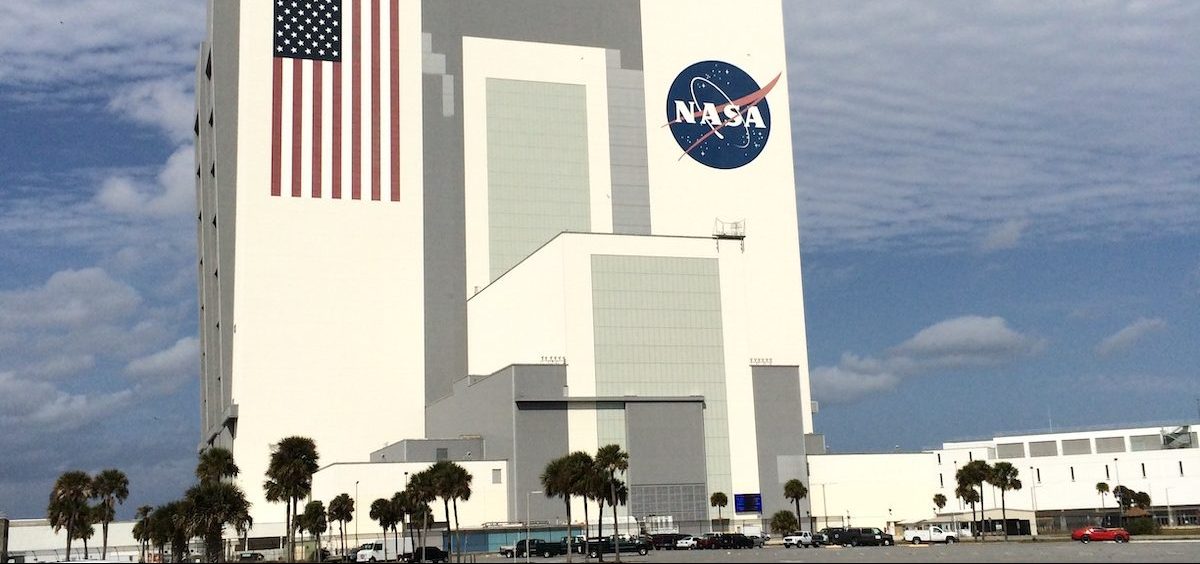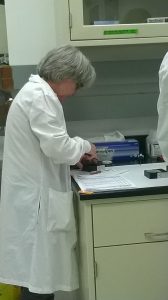
An Ohio University professor’s plant research might contribute to long-distance space travel
By: Gabriel Scotto
Posted on:
ATHENS, Ohio (WOUB) – An Ohio University professor’s research into plant biology has significant implications for space travel, along with applications closer to home.
Sarah Wyatt, a professor of environmental plant biology at Ohio University, is among 18 scientists selected by NASA to work on its Decadal Survey on Biological and Physical Sciences Research in Space.
“I do research on gravitation biology and how plants sense gravity, which led me to working with NASA because space flight is really the only place you can have a true control,” said Wyatt, who worked on the decadal for the biological and physical sciences division.
Wyatt’s interest in space travel began when she was a child. She grew up watching episodes of “Star Trek” and decided she wanted to become a real-life astronaut after her 11th birthday, when NASA landed a man on the moon.
“I thought that was cool, but I saw no mechanism for me to become an astronaut. All the astronauts were men; we didn’t start seeing women astronauts until the 1970s.”

Instead, Wyatt studied biology at the University of Kentucky in Lexington and graduated with a master’s in plant pathology before receiving her Ph.D. at Purdue. Shortly after she graduated, an opportunity to work with NASA presented itself.
“When I finished my Ph.D., a call came out for postdocs to work on a NASA-funded project. In my cover letter, I talked about my background and what I was interested in, and I also said I was a bit of a space geek. They didn’t really have a space geek and could use one, so they gave me the job.”
As part of her research, Wyatt has sent four experiments to the International Space Station, with a fifth on the way. Wyatt’s first experiment was to look at plant proteins. While other scientists did genome-level and RNA-level experiments, Wyatt noticed nobody had really looked at proteins.
“Proteins are the workhorses, they’re the endpoint, so proteins are really what you want to look at,” explained Wyatt. “So, I proposed to NASA to do a proteomics study.”
Wyatt’s second experiment was looking at the effects of microgravity on plants using a centrifuge to simulate multiple G-levels. Wyatt performed RNA extractions at every single G-level on the root tips, roots, shoots and leaves.
“We’ve always thought there was a secondary gravity signal, but there seems to be a more fundamental signal. With plants, there’s a couple of different mechanisms – you need a backup. And through that experiment, we might find it. It’s starting to look like we may have some real insight into what that mechanism is.”
Wyatt’s most recent experiment was Advanced Plant Experiment-07 (APEX-07), which examines how environmental factors associated with spaceflight impact plants at the level of gene expression. Because it wasn’t possible to get enough tissue to analyze proteins, APEX-07 trapped RNA on the ribosomes while RNA is being converted to protein.
Wyatt is currently working on an experiment to see how radiation in space affects plants. Specifically, how much radiation plants are seeing and what kind of stress plants are experiencing from radiation. The experiment is still in the preliminary stages, but it is funded and Wyatt hopes it will be ready to go by next year.
“There’s all this groundwork that has to go on. You want to make sure the experiment’s going to work when you send it up, so you don’t want it to go up and then not have a product because of some small detail that you missed on the ground.”
All this preparation is necessary, as working with plants in outer space presents unique challenges for scientists. Even the simple act of feeding and watering plants isn’t as straightforward as it is on Earth.
“If you want to water a plant (in space) the water won’t go in, it just stays and often it can stay right around the root zone and then it blocks all the oxygen. That’s one of the reasons why we have very specific hardware that we can work with when we go to fly. So, you must plan your experiment and show how it will work in that hardware.”
Wyatt views her research as a continuation of the selective breeding that humankind has undertaken with plants since the dawn of the agricultural revolution. While primarily focused on growing plants in space to facilitate long-distance space travel, Wyatt says a greater understanding of the effect gravity has on plants can be useful on Earth as well.
“Over the millennia, we have selected plants for all kinds of things, and to understand better how plants respond to gravity will give us more information about how to better create plants for human food, both on Earth and in space flight. That’s fundamental research. Understanding the world around us is critically important, because you never know what it might lead to.”

